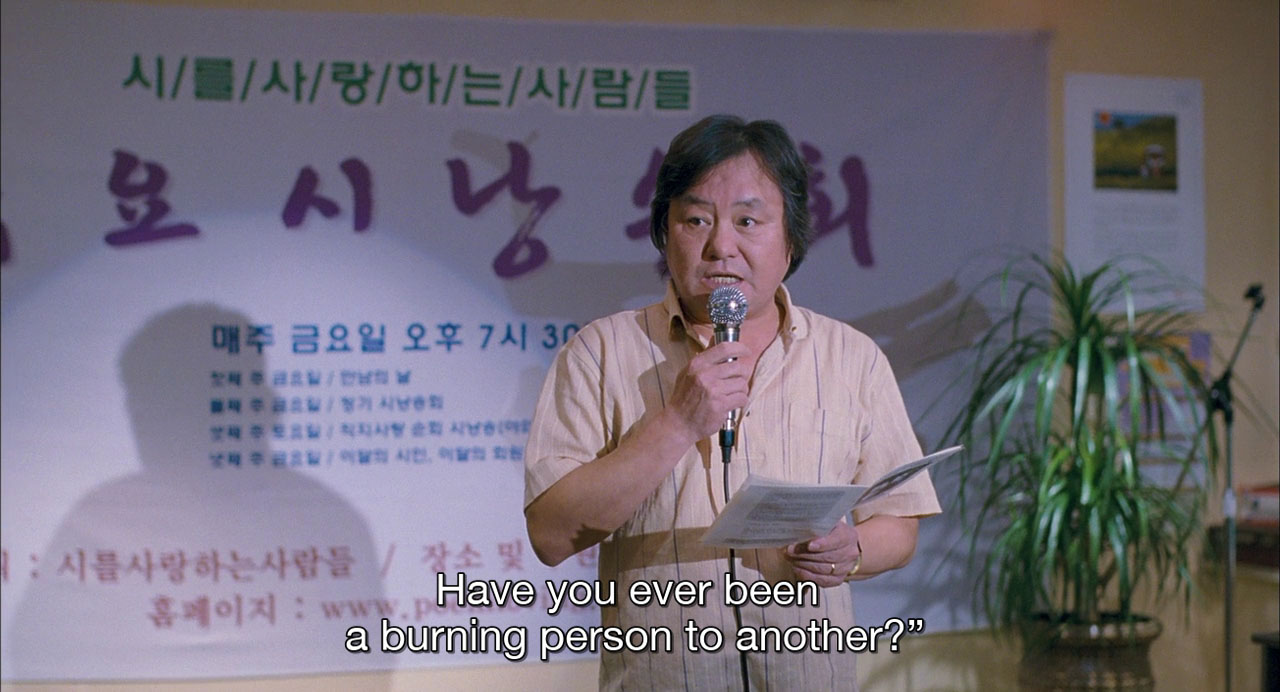I watched this the same night as In Water just because they’re recent Hong movies with short runtimes, not looking for connections, but I noted characters saying “I’ll do my best / let’s do our best” in both movies. Two separate-but-similar three-person situations with no direct intersection, cutting back and forth between them, each chapter with a preceding descriptive intertitle like it’s a Dickens chapter.

1. Actress Kim Min-hee is staying with friend Song Sun-mi (also Kim’s friend in The Woman Who Ran), when young aspiring actress Park Mi-so comes for a visit/interview.

2. Older Gi Ju-bong (the dad in Hotel by the River) is a belatedly popular poet, Kim Seung-yun is at his place filming candid scenes for a documentary on him, aspiring poet Ha Seong-guk comes to visit/interview (these two costarred in In Water).

Different sorts of dramas ensue – in the first, the host’s cat escapes and the visitor helps recover him. In the second, the visitor is trying to kiss up and stay longer and helps the newly on-the-wagon poet get boozed up.
















